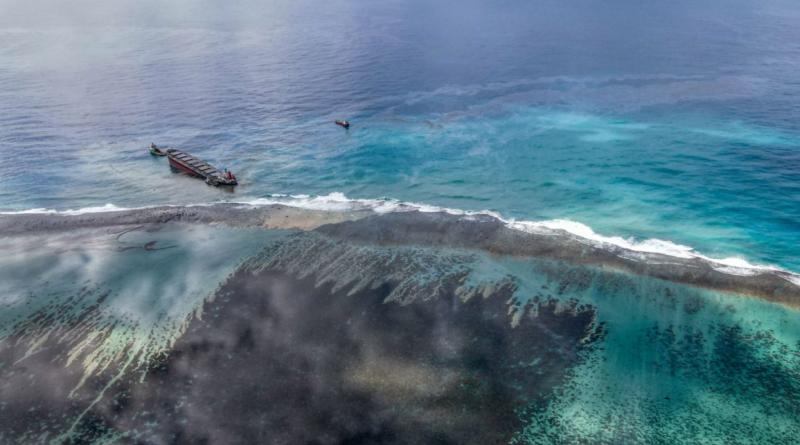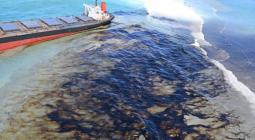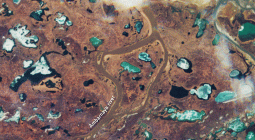Mauritius Rushes to Contain Oil Spill Before Ship Breaks Apart.

The tiny island nation of Mauritius, known for its turquoise waters, vibrant corals and diverse ecosystem, is in the midst of an environmental catastrophe after a Japanese cargo ship struck a reef off the country's coast two weeks ago. That ship, which is still intact, has since leaked more than 1,000 metric tons of oil into the Indian Ocean. Now, a greater threat looms, as a growing crack in the ship's hull might cause the ship to split in two and release the rest of the ship's oil into the water, NPR reported.
On Friday, Prime Minister Pravind Jugnauth declared a state of environmental emergency.
France has sent a military aircraft carrying pollution control equipment from the nearby island of Reunion to help mitigate the disaster. Additionally, Japan has sent a six-member team to assist as well, the BBC reported.
The teams are working to pump out the remaining oil from the ship, which was believed to be carrying 4,000 metric tons of fuel.
"We are expecting the worst," Mauritian Wildlife Foundation manager Jean Hugues Gardenne said on Monday, The Weather Channel reported. "The ship is showing really big, big cracks. We believe it will break into two at any time, at the maximum within two days. So much oil remains in the ship, so the disaster could become much worse. It's important to remove as much oil as possible. Helicopters are taking out the fuel little by little, ton by ton."
Sunil Dowarkasing, a former strategist for Greenpeace International and former member of parliament in Mauritius, told CNN that the ship contains three oil tanks. The one that ruptured has stopped leaking oil, giving disaster crews time to use a tanker and salvage teams to remove oil from the other two tanks before the ship splits.
By the end of Tuesday, the crew had removed over 1,000 metric tons of oil from the ship, NPR reported, leaving about 1,800 metric tons of oil and diesel, according to the company that owns the ship. So far the frantic efforts are paying off. Earlier today, a local police chief told BBC that there were still 700 metric tons aboard the ship.
The oil spill has already killed marine animals and turned the turquoise water black. It's also threatening the long-term viability of the country's coral reefs, lagoons and shoreline, NBC News reported.
"We are starting to see dead fish. We are starting to see animals like crabs covered in oil, we are starting to see seabirds covered in oil, including some which could not be rescued," said Vikash Tatayah, conservation director at Mauritius Wildlife Foundation, according to The Weather Channel.
While the Mauritian authorities have asked residents to leave the clean-up to officials, locals have organized to help.
"People have realized that they need to take things into their hands. We are here to protect our fauna and flora," environmental activist Ashok Subron said in an AFP story.
Reuters reported that sugar cane leaves, plastic bottles and human hair donated by locals are being sewn into makeshift booms.
Human hair absorbs oil, but not water, so scientists have long suggested it as a material to contain oil spills, Gizmodo reported. Mauritians are currently collecting as much human hair as possible to contribute to the booms, which consist of tubes and nets that float on the water to trap the oil.
12 August 2020
EcoWatch





